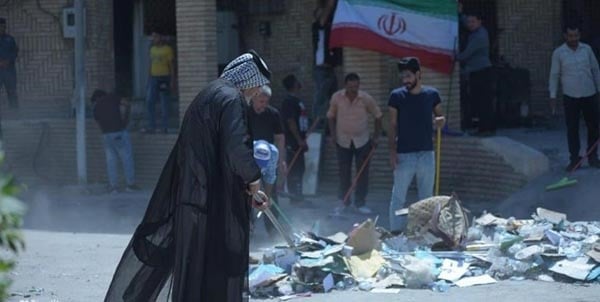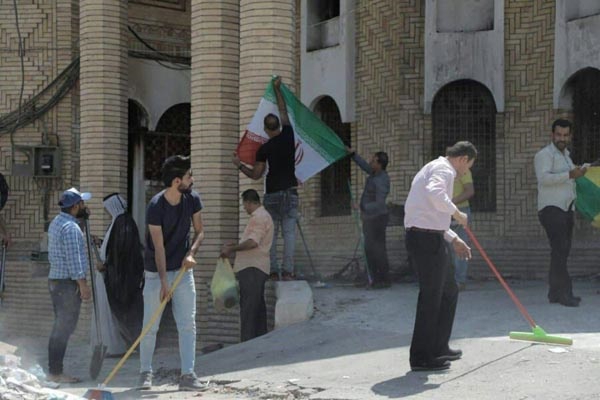The youths gathered in and symbolically cleaned the former building of the Iranian consulate in Basra which came under attack and was burned by a group of attackers last Friday.
The youths also hoisted the national flag of Iran at the building and hanged the photos of the Founder of the Islamic Republic Imam Khomeini and the Leader of the Islamic Revolution Ayatollah Seyyed Ali Khamenei on its walls to show their deep solidarity with the Iranian people after the consulate building was attacked and torched on September 7.
The move came after a public committee charged with holding rallies in Basra issued a statement and acquitted itself of any involvement in the violent attack on the Iranian consulate in the city. It also vehemently condemned any attack on the governmental buildings, Popular Mobilization Unitsí centres and Iranís consulate.

The statement then underlined that a group of missionaries affiliated with Baíath party and ISIS have launched the attack and the people in Basra had no role in the sabotage.
The symbolic move by the Basra youths also came one day after Iranís ambassador to Iraq opened a new consulate in the southern port city.
ďIím here to inaugurate the new premises of our Consulate in BasraÖbecause we donít want to lose a single day in offering services to the people of Basra,Ē Ambassador Iraj Masjedi said on September 11.
The Iraqi government said an investigation has begun over the performance of the security forces responsible for protecting the mission.
This comes as many Iranian pilgrims are expected to visit neighbouring Iraq later this month for Ashura, one of the most sacred days in the Shiite religious calendar.
The city of Basra has seen the scene of growing protests in the past weeks. The protesters are angry with corruption and the lack of basic services and jobs in a province.











